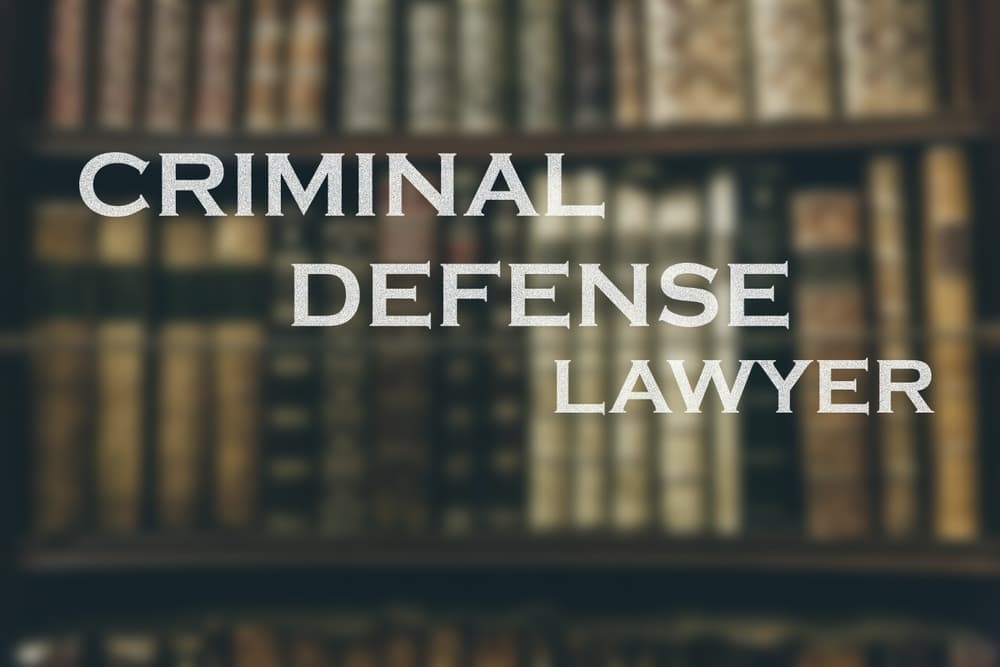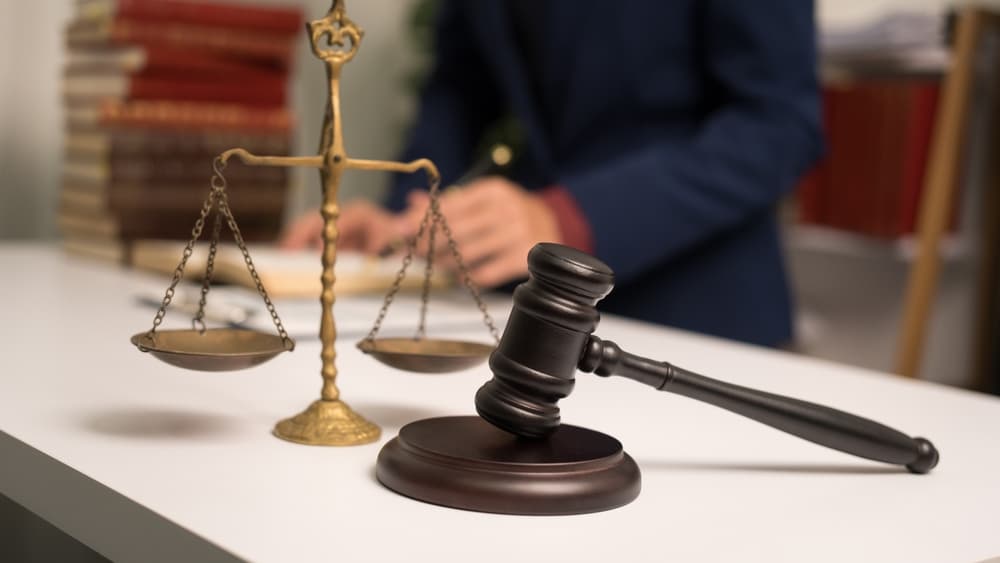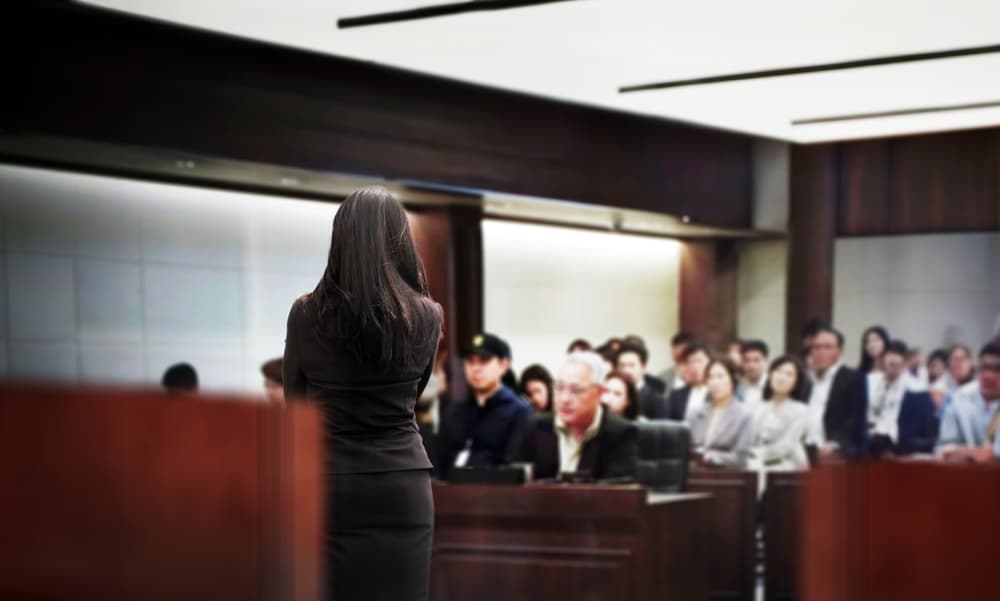Criminal defense lawyers are the backbone of the criminal justice system, ensuring those accused of crimes receive a fair trial. Their knowledge and experience support the legal rights of their defendants, the court processes, and defense strategies.
Schedule Your Free Consultation
Understanding Legal Rights

A criminal defense lawyer's primary duty is safeguarding the legal rights of their clients. They must ensure the accused fully understands their rights, such as the right to remain silent and the right to a fair trial. They ensure police and prosecutors obtain evidence legally and conduct investigations fairly. Doing so will prevent constitutional rights violations and ensure the other parties follow the correct legal process.
As a defendant, you may ask:
- What is the difference between a misdemeanor and a felony?
- What constitutional rights apply to a criminal defendant?
These questions will clarify the role of a criminal defense attorney and their role in your criminal defense.
The Foundation of a Criminal Defense
Imagine this scenario: It's 2 AM, and your phone rings. A friend has been arrested and needs your help. What are their immediate rights? What should they do?
A criminal defense attorney’s priority is to protect their client’s rights from the time of the arrest. These rights include:
The Right to Remain Silent
Did you know this right is in force before the police read your Miranda warnings?
For example, a client starts talking to the police before their attorney arrives. Speaking without having a lawyer present can be used against a client in a court of law. Therefore, it’s essential not to talk about the circumstances of your arrest until legal help arrives.
Defense lawyers often advise clients to say only these words: "I invoke my right to remain silent and want to speak with my attorney."
The Right to Legal Representation
This right begins as soon as you’re taken into custody and interrogated. Once invoked, the police must stop their questioning until the attorney arrives. A court-appointed lawyer is available to people who can’t afford a private lawyer.
Protection Against Illegal Searches
A search warrant is only valid unless a judge issues it based on probable cause. The legal document should also describe where investigators plan to search, including the items they intend to seize. Police may search without a warrant if they receive consent, see the evidence in plain view, or their search leads to an arrest.
For example, an officer searches a client's car trunk during a routine traffic stop. In this case, a lawyer might ask if the officer had probable cause or consent. Was the search within the scope of the traffic stop?
Right to a Fair Trial
This right includes the right to an impartial jury, the right to confront witnesses, and the presumption of innocence.
Protection from Self-Incrimination
This right prevents individuals from being forced to testify against themselves.
Right to a Speedy Trial
This right ensures the police do not hold a defendant in custody for an unreasonable time before trial.
Protection from Cruel and Unusual Punishment
This right prohibits excessive bail, fines, and cruel and unusual punishment.
How the Criminal Defense Lawyer Supports the Legal Process

Think of a criminal defense strategy like a chess game where every move matters. Let's break down the process:
Evidence Gathering
Your attorney needs the following information to proceed with the case:
- Surveillance footage
- Cell phone records
- Witness statements
- A client's previous convictions
The attorney considers the following factors when collecting evidence:
- Admissibility challenges
- Constitutional issues
- Credibility factors
- Strategic value
Violations may occur during an arrest. A criminal defense lawyer ensures that the police and prosecutor investigate a crime legally.
Timeline Construction
A criminal defense lawyer creates a timeline based on the evidence and circumstances to construct the crime they're defending. This frame of reference keeps them organized and helps them build a defense strategy. Below is an example of a partial timeline.
9:00 PM - Client leaves work (confirmed by timecard)
9:30 PM - Alleged crime occurs
10:15 PM - Client purchases an item at a gas station (receipt available)
11:00 PM - Police make an arrest . . . .
Your lawyer may consider the following: What questions arise from this timeline? What gaps should the lawyer fill?
Trial Preparation

Your lawyer will prepare for trial with the following activities.
Witness Preparation. A lawyer prepares key witnesses for cross-examination, considering a witness’s body language and voice tone. They also discuss how to handle hostile questions and stay on topic.
Evidence Presentation. Modern trials require modern presentation methods that include:
- Digital evidence organization
- Visual aids creation
- Demonstrative exhibits
Cross-Examination. An experienced criminal lawyer is adept at cross-examining. Cross-examining requires strategic questioning, such as asking leading questions to tell the defendant’s story or using precise wording.
Impeachment methods may expose bias, prove statement inconsistencies, and challenge a witness’s credibility.
Post-Trial Advocacy. The court may continue the case when it reads the verdict. If you’re found guilty and the lawyer finds errors in the trial, they can appeal your case. The grounds for appeal include:
- Legal errors during trial
- New evidence discovery
- Constitutional violations
This process may involve a direct appeal or collateral attacks.
Direct Appeals:
- These initial appeals are filed immediately after a conviction.
- They must be filed within a strict time limit (usually 30-60 days after sentencing)
- The appeals deal with issues that are directly visible in the trial record (like improper evidence admission, jury instructions, or legal errors)
- Appeals go directly to the next higher court in the same system (e.g., from trial court to appellate court)
- Filing an appeal is only allowed when it raises issues that the prosecution objected to during the trial.
- Generally, your attorney must file the appeal before pursuing any collateral attacks.
Collateral Attacks:
- These are challenges made after the direct appeal process is complete.
- Defendants use collateral attacks in proceedings like habeas corpus petitions or motions for post-conviction relief.
- You can use collateral attacks to raise issues outside the trial record (e.g., new evidence, ineffective assistance of counsel, or prosecutorial misconduct).
- Defendants may file collateral attacks in a different court system (e.g., challenging a state conviction in federal court).
- The challenges have more flexible time limits, but defendants must still meet certain deadlines.
- Collateral attacks may address constitutional violations that weren't apparent during the trial.
Alternative Resolutions
A criminal defense lawyer can negotiate alternative resolutions that provide options besides incarceration. These alternatives include:
- Rehabilitation programs
- Diversion programs for first-time offenders
- Alternative sentencing
- Expungement possibilities
Criminal defense attorneys use their negotiation and argument skills for many legal activities.
Hire a Criminal Defense Lawyer for Best Results
Criminal defense lawyers committed to their responsibilities keep updated educationally, build their network, and have a proven record of legal success. If you need a criminal defense lawyer, find an attorney who understands situations like yours and retain their services immediately.